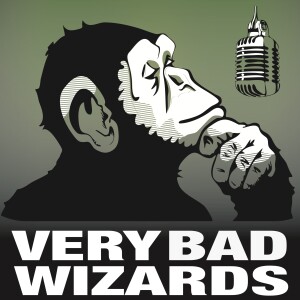
Dave and Tamler talk about the influence of character judgments on attributions of blame. What is the function of the blame--to assign responsibility or to judge a person's character? Is it fair that we blame douchebags more than good people who commit exactly the same act, or is it yet another cognitive bias that should be avoided? Plus we delve into the Richie Incognito hazing story (maybe a little early since the story has developed) and Tamler tries to figure out how to teach the Gospels to students who know roughly 100 times as much about them than he does.
Links- "The Miami Dolphins and Everything that Will Never Make Sense." by Andrew Sharp. (grantland.com)
- Interview with Richie Incognito (youtube.com)
- Gospel of Matthew [wikipedia.org]
- Synoptic Gospels [wikipedia.org]
- Pizarro, D.A. & Tannenbaum, D. (2011). Bringing character back: How the motivation to evaluate character influences judgments of moral blame. In M. Mikulincer & Shaver, P. (Eds) The Social psychology of morality: Exploring the causes of good and evil. APA Press.
- A recent chapter on character and moral psychology that David wrote (with Roy Baumeister) just to be able to talk about comics and porn : Superhero Comics as Moral Pornography. In R. Rosenberg (Ed.) Our Superheroes, Ourselves. Oxford University Press.
- Tannenbaum, D., Uhlmann, E. L., & Diermeier, D. (2011). Moral signals, public outrage, and immaterial harms. Journal of Experimental Social Psychology, 47(6), 1249-1254.
Support Very Bad Wizards
More Episodes
Episode 295: Guess Who's Coming to Dinner
 2024-10-29
2024-10-29
 2024-10-29
2024-10-29
Episode 292: Boundary Issues
 2024-09-10
2024-09-10
 2024-09-10
2024-09-10
Episode 291: Shoe Shining
 2024-08-27
2024-08-27
 2024-08-27
2024-08-27
Episode 285: On Culture and Agriculture
 2024-05-28
2024-05-28
 2024-05-28
2024-05-28
Episode 284: Reel Choices
 2024-05-15
2024-05-15
 2024-05-15
2024-05-15
Episode 283: When Elephants Podcast
 2024-04-30
2024-04-30
 2024-04-30
2024-04-30
Episode 281: Choose Your Fighter
 2024-03-26
2024-03-26
 2024-03-26
2024-03-26
Episode 276: Attention Please
 2024-01-16
2024-01-16
 2024-01-16
2024-01-16
012345678910111213141516171819
Create your
podcast in
minutes
- Full-featured podcast site
- Unlimited storage and bandwidth
- Comprehensive podcast stats
- Distribute to Apple Podcasts, Spotify, and more
- Make money with your podcast
It is Free
- Privacy Policy
- Cookie Policy
- Terms of Use
- Consent Preferences
- Copyright © 2015-2024 Podbean.com





